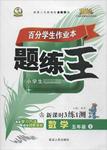题目内容
— It is so crowded and the pollution is so serious here!
— You see, ______. I’m going to quit my job and move to the country.
A. I’ve had enough B. I like it here
C. That will be OK D. It’s not so bad
练习册系列答案
 百分学生作业本题练王系列答案
百分学生作业本题练王系列答案
相关题目
题目内容
— It is so crowded and the pollution is so serious here!
— You see, ______. I’m going to quit my job and move to the country.
A. I’ve had enough B. I like it here
C. That will be OK D. It’s not so bad
 百分学生作业本题练王系列答案
百分学生作业本题练王系列答案